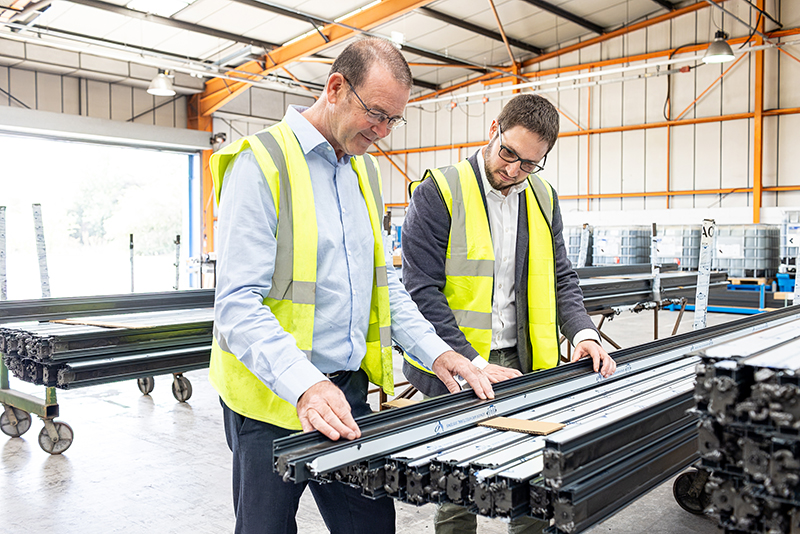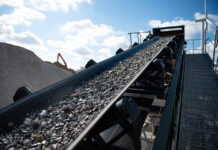
SENIOR Architectural Systems has announced plans to launch a new initiative, which will see all polyurethane foam waste generated during the manufacture of the patented thermal break in Senior’s PURe aluminium windows and doors collected and reused.
The firm revaled that around 80 tonnes of polyurethane foam waste is produced annually as part of the PURe manufacturing process. This occurs when extra polyols and isocyanate chemicals are injected into the thermal breaks to prevent cold spots during curing. The result is a thermal barrier that is said to deliver lower U-values and improved energy performance compared to traditional systems.
However, the process creates excess cured foam and although this waste has always had the potential to be reused, it has previously been difficult to manage at scale. Senior is now working with a specialist waste partner to chemically break down the expanded and cured polyurethane foam into its original raw components — polyols and isocyanates. These recovered materials will be reintroduced into Senior’s own manufacturing processes, creating a circular system that eliminates landfill disposal.
The initiative is scheduled to be fully operational by the end of the year and once implemented, the recovered materials will be reused internally. Senior expects this approach to reduce carbon emissions, cut waste, and lessen demand for virgin raw materials.
Available in a variety of configurations, including aluminium casement windows, tilt and turn windows, and both commercial and domestic style doors, the PURe system has been used across various sectors, specifically in the education and residential markets.
Senior added that its investment in advanced recycling initiatives builds on the company’s ongoing commitment to reducing the environmental impact of its operations and supporting customers to make more informed choices. Recent projects completed under the guidance of Senior’s UK sustainability lead Luke Osborne include the wider use of UK sourced recycled aluminium through the company’s ReAL 2.0 product line and, most recently, the publication of a new generation of Environmental Product Declaration (EPD) documents.
These EPDs provide project-relevant data across the full system, supported by scaling tables for accuracy. Senior said that unlike some comparable EPDs, which include elements outside of a system house’s supply and risk distorting results when divided down, Senior’s approach ensures ‘complete transparency’ by focusing solely on the products it supplies. The first of these product-specific EPDs covers Senior’s SF52 aluminium curtain wall system and is available now on request or via NBS Source.








